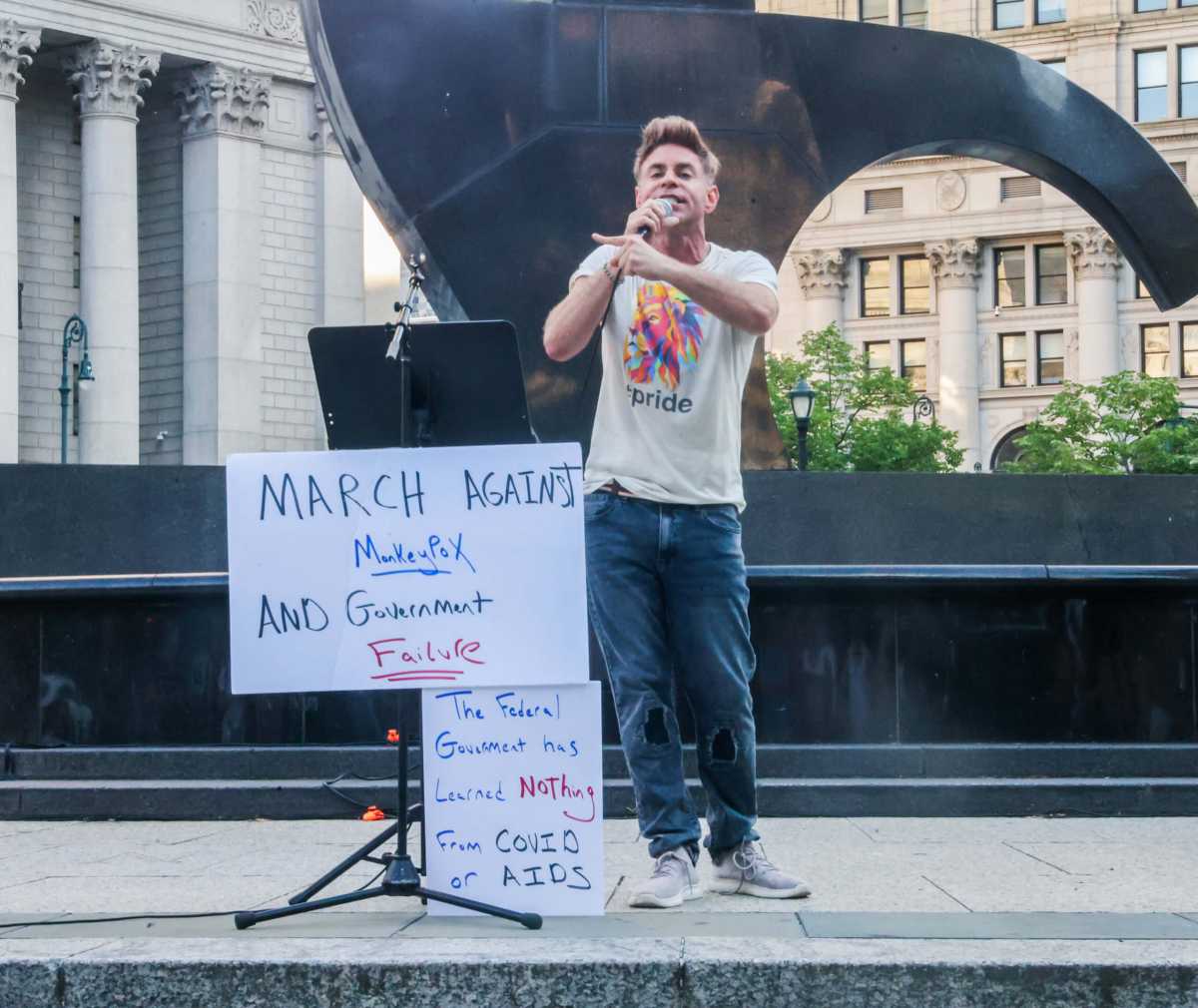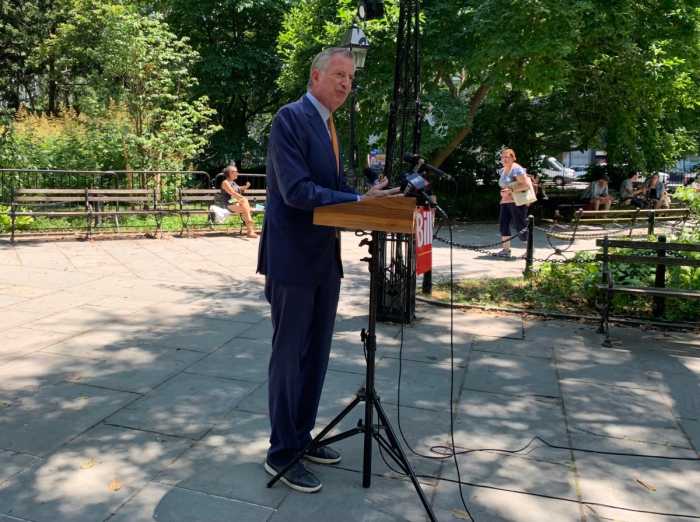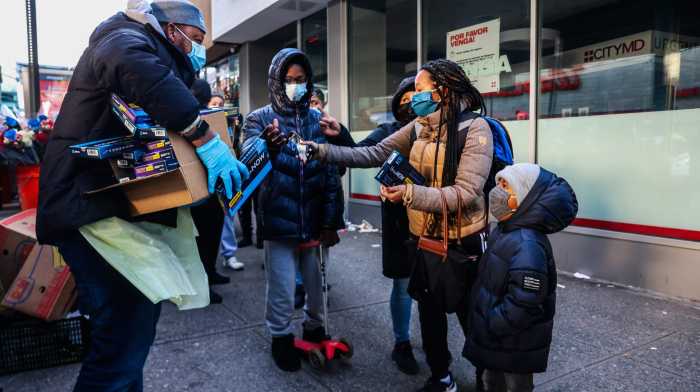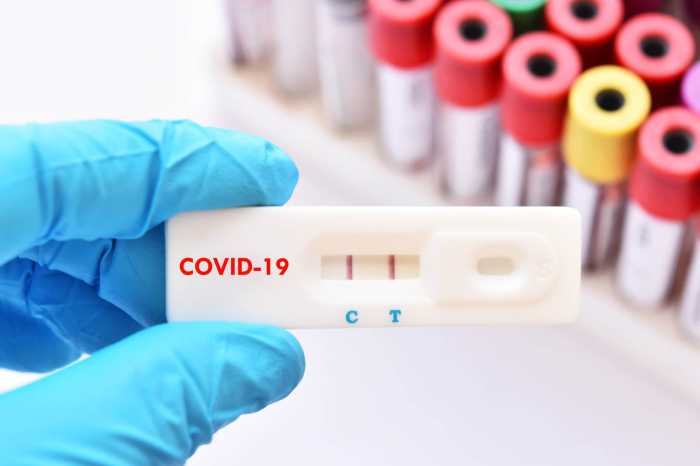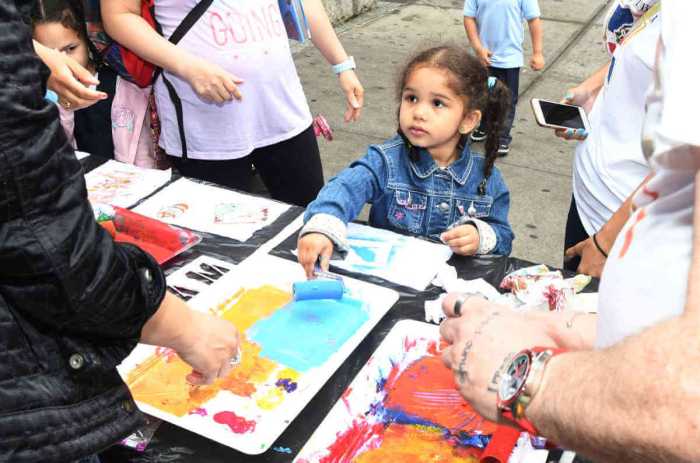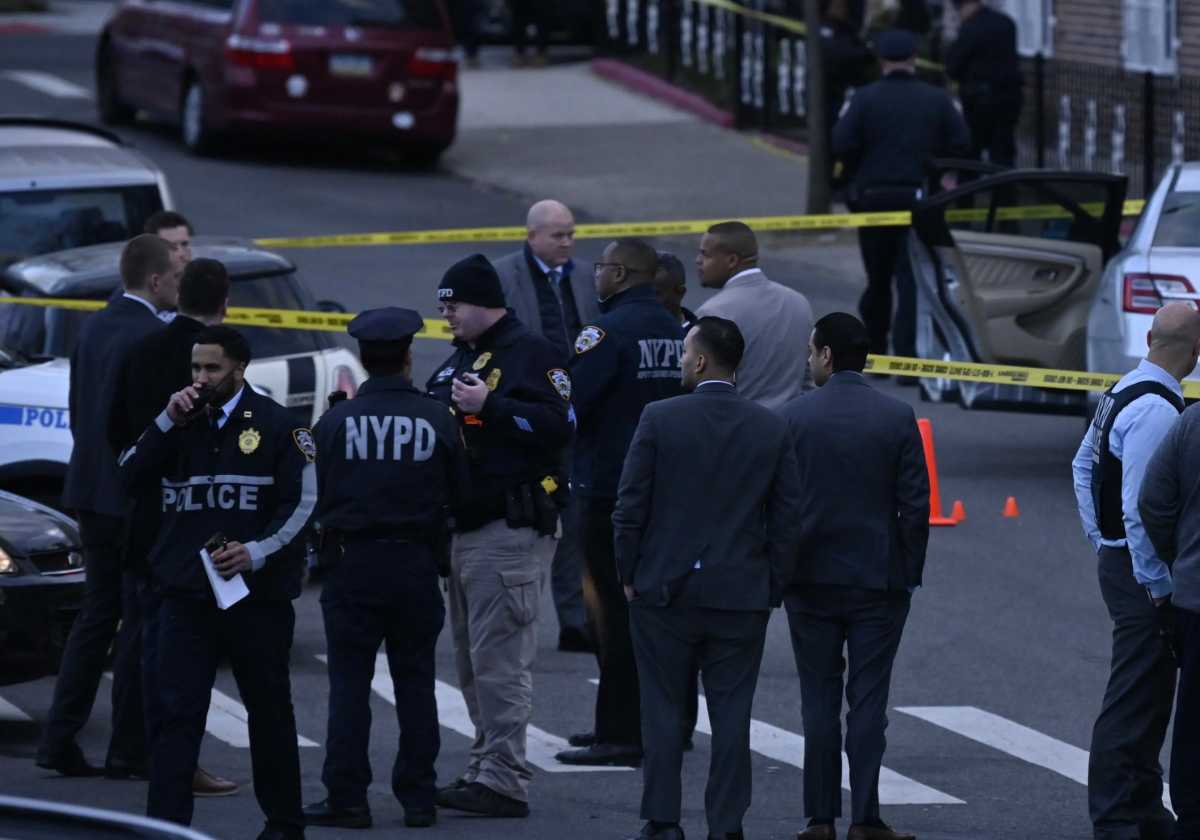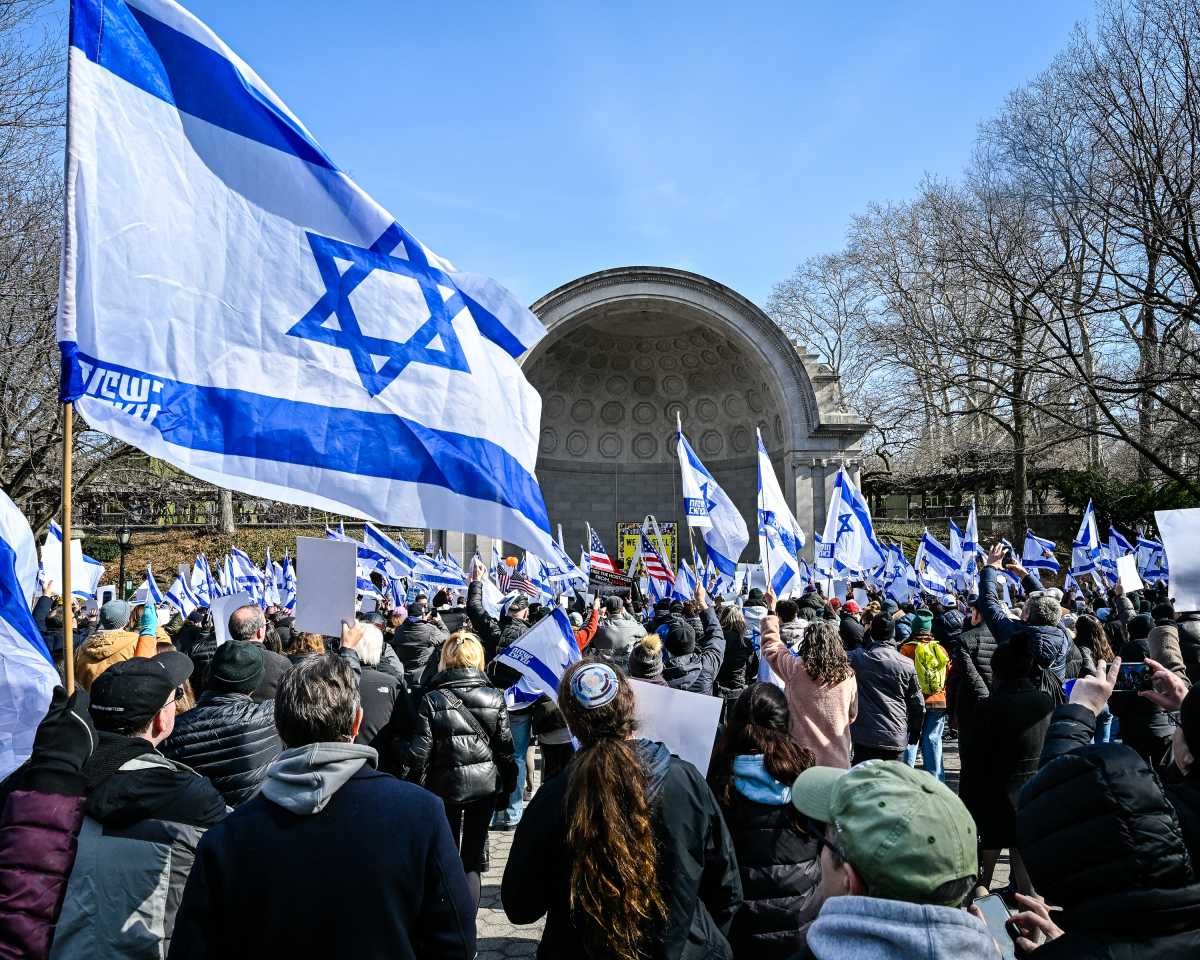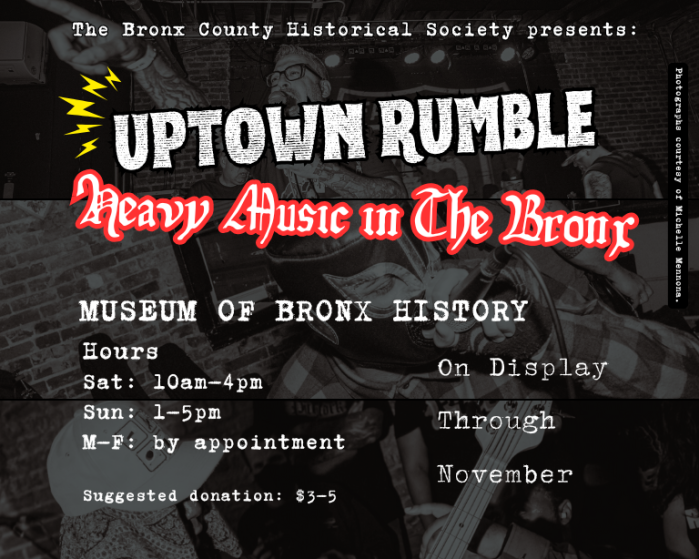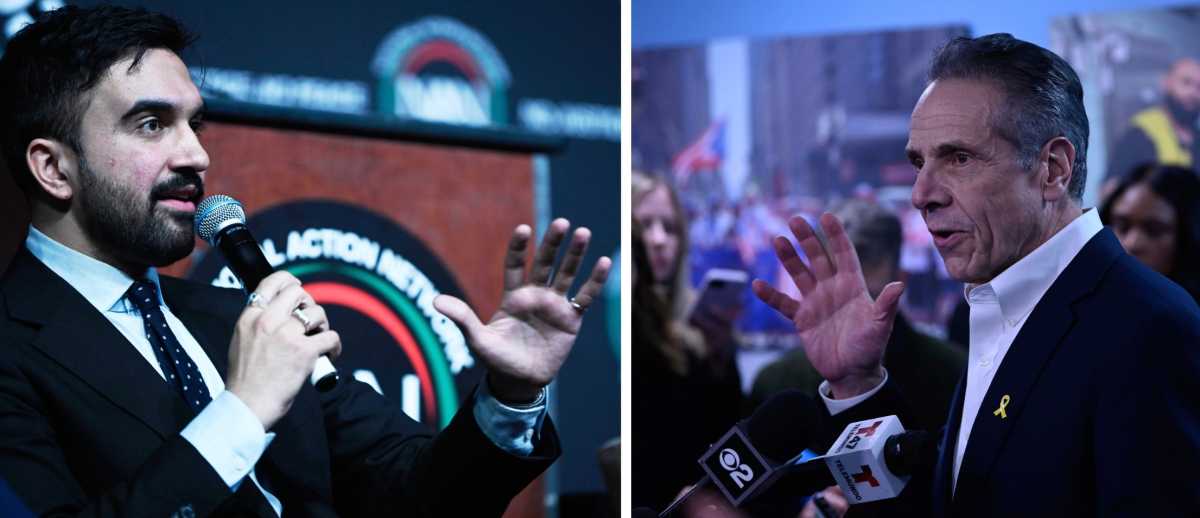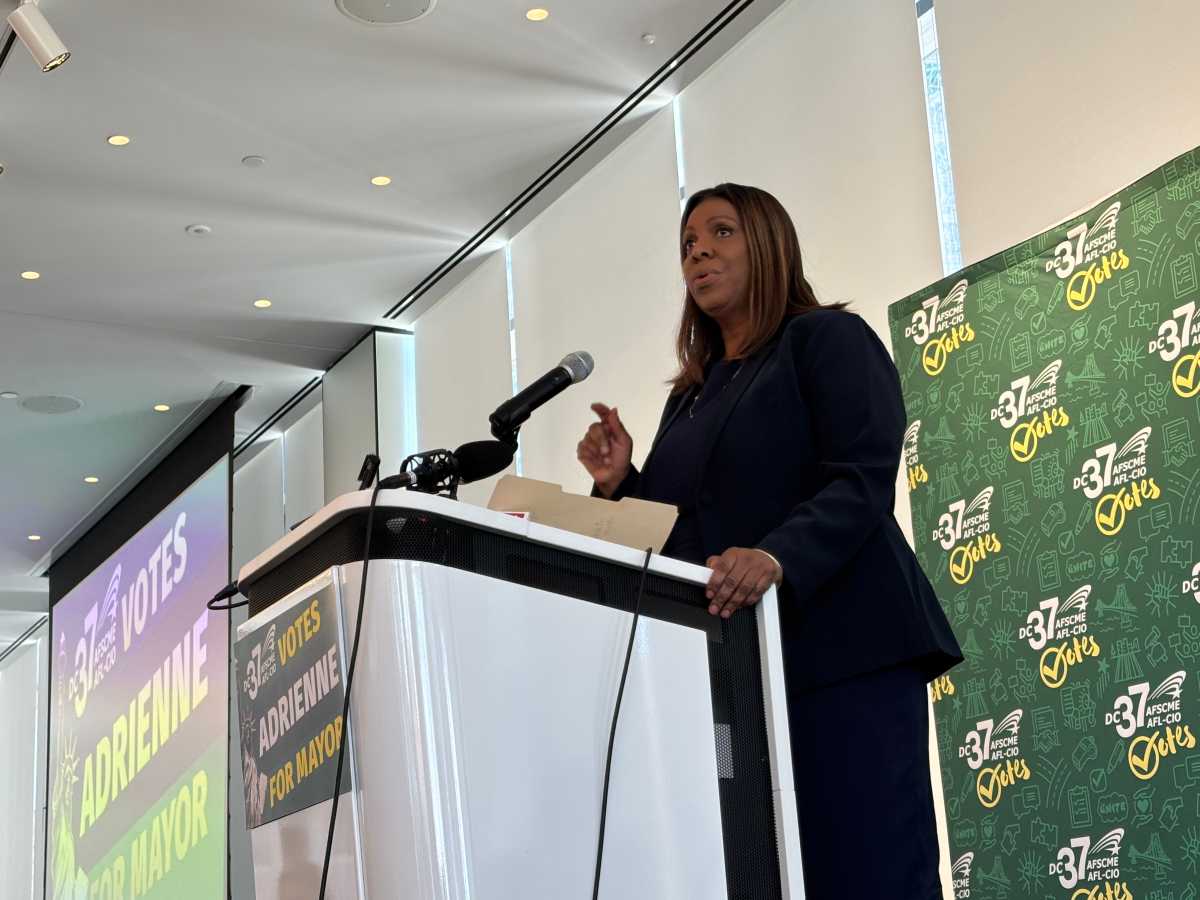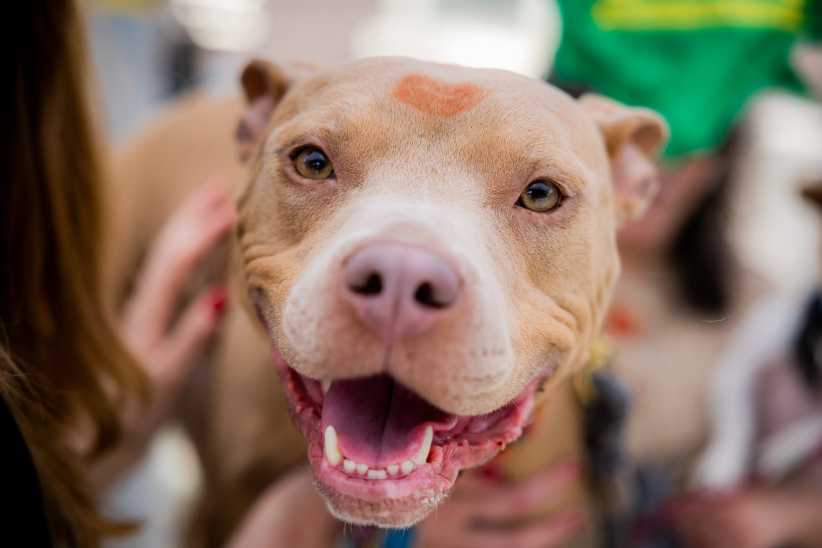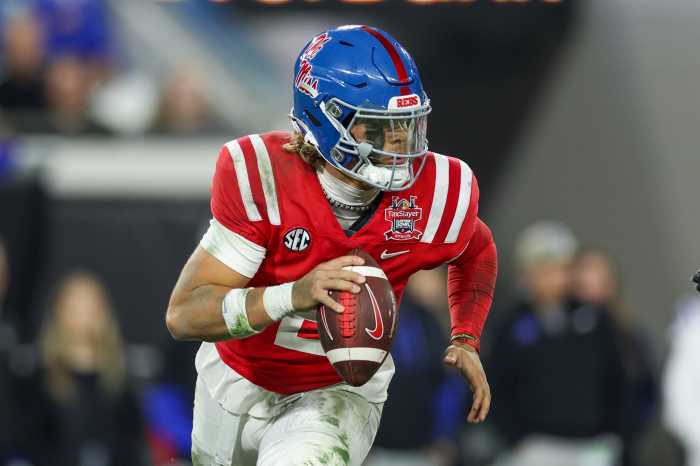As monkeypox cases rise in New York City, the Bronx is not immune.
As of Thursday, there are 778 people in New York City who tested positive for monkeypox, according to the New York City Department of Health and Mental Hygiene. There are 830 cases statewide, according to the New York State Department of Health.
But the city department’s most recent public breakdown of where the cases are from, released Thursday, only includes case information up to Tuesday afternoon, representing just 639 of the cases.
Of those cases, 73 or 11.4% are Bronxites, an increase from data reflective as of last Friday — just days earlier — that said Bronxites made up just 10.1% of cases.
In the most recent data, Queens have just half a dozen more cases than the Bronx, at 79.
Manhattan has been seeing the most cases reported, with 346 cases, while Brooklyn had 138 and Staten Island had just 3, all from the department’s most recently released data, reflective as of Tuesday.
While the majority of reported infections in the current NYC outbreak are men who have sex with men, anyone can get the virus.
Included in the data were 624 men, one woman and nine transgender and gender nonconforming people, as well as five people whose gender the health department did not know because of missing or pending case information.
The sexual orientation was not known for 295 people, or 46.2% of the cases, while 335 identified as LGBQ+ and nine identified as straight.
And aside from the 139 more cases that have been reported in the past few days that aren’t reflected in the data, city health officials have acknowledged there are likely many more undiagnosed cases. State Senator Gustavo Rivera, a Progressive who chairs the state Senate health committee, said that while the health department data so far shows that most cases are in Manhattan, he is concerned the numbers are more representative of who has access to testing and resources rather than who is most impacted.
Vaccines in the Bronx
There has been one pop-up vaccination site in the Bronx, held at the Bronx High School of Science on Sunday as part of the city’s mass vaccination effort across the five boroughs that began over the weekend after, according to a July 15 health department update, the city received about 14,500 doses of the vaccine last week.
The department just announced Thursday that the city received 25,963 more doses for appointments from July 24 through Aug. 13.
Reservations for the appointments will go live at 6 p.m. Friday for 17,000 doses city-wide, with Bronx-based appointments at Lincoln Hospital as well as at the Bronx High School of Science. Of the city’s remaining doses, 3,850 will be used for referrals from community-based organizations that serve higher-risk New Yorkers and the rest will go to known contacts of cases identified through contact tracing. Appointments are for the first doses only.
Currently, those eligible for the vaccine in NYC are gay, bisexual or other men who have sex with men and/or transgender, gender non-conforming or gender non-binary people 18 years old and older who have had multiple or anonymous sex partners in the last 14 days, as well as people who have been informed by the health department that they are a close contact of someone with monkeypox. Those who have had monkeypox are not eligible to be vaccinated, as they likely have some protection against another infection, according to the health department.
Rivera said in a statement that Sunday’s single-day Bronx vaccination event had a line down the block. The Bronx event had 1,400 doses for pre-registered recipients, according to Bronx Borough President Vanessa Gibson’s Office and there were 71 people who canceled or didn’t show up.
In an interview with the Bronx Times on Wednesday, Gibson said the leftover vaccines would be distributed to sexual health clinics in other boroughs in the city.
During the city’s last vaccine rollout, the city’s online portal crashed and appointments were swept up within minutes. To get alerts about appointments, text MONKEYPOX to 692-692, or MONKEYPOXESP for Spanish.
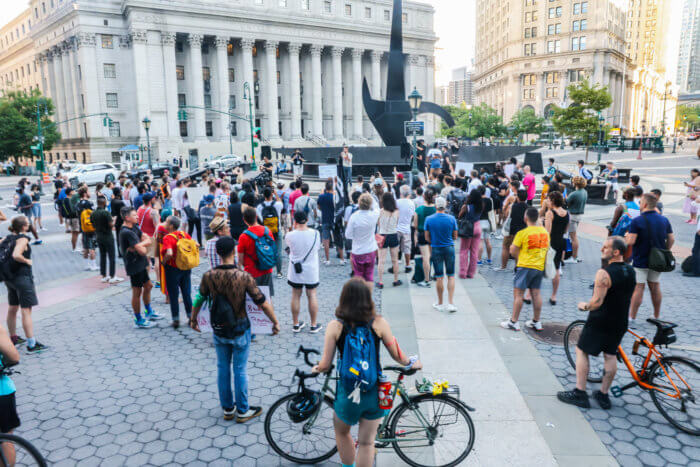
Call for action
ACT UP New York held a rally at Foley Square in Manhattan on Thursday demanding from the state that all communities are included in vaccine deployment and community outreach, including meaningful outreach to vulnerable communities, particularly people in prisons, people experiencing homelessness and people who use drugs.
The activists also want an emergency safety net fund for people who test positive for monkeypox and have to take off work to quarantine, and hotel rooms for people who don’t have an appropriate place to quarantine.
The NYC health department instructs people with symptoms to isolate from others immediately and see their health care provider for testing.
If fully separating from others is not possible, individuals should wear a face mask, avoid physical contact and wear clothing that covers any rashes or lesions, according to the department. Clothing, bedding, utensils, dishes, towels and food should not be shared.
The Bronx Times has asked the city health department about providing ways for people to isolate who do not have the option and is awaiting a response. Gibson also said she asked the health department about this.
If an individual doesn’t have a health care provider to see for testing, the city department on its monkeypox webpage suggests calling 311 or searching the NYC Health Map. But the webpage does not specifically list where testing is available and the health map, which is navigated by choosing a service, such as HIV testing, does not have a category for monkeypox testing.
The map does, however, have an LGBTQ health services primary care selection.
But when the Bronx Times asked the health department where on the health map people should look for monkeypox testing, spokesperson Patrick Gallahue repeated the information from the website and said a provider will check symptoms and may order testing.
The New York State Department of Health has given information about testing to health care providers, according to the state website.
Meeting people where they are
Local nonprofits in the Bronx that make up Gibson’s office’s LGBTQ task force have been working as “credible messengers” to get information about monkeypox out to the community, the borough president said. The group met with the health department, health providers and Gibson’s office on Monday to discuss outreach and meet people where they are, she said.
“As an example, there are parts of our borough where we have sex workers,” she told the Bronx Times. “We need to go out and talk to them because many of them will not come to us.”
But Gibson feels the city should be doing more outreach in the Bronx, like through public messaging campaigns at subway and bus stations.
All five borough presidents blamed the federal government and other countries for not providing treatment and vaccines to countries in Africa, where the virus is endemic, in a joint letter on Monday that called on the CDC to send more vaccines to NYC.
“We cannot repeat the failed government response to past epidemics like with HIV,” the letter stated. “The LGBTQ+ community is counting on us to get the response right this time.”
The most common symptom of monkeypox is a rash or sores that can look like pimples or blisters, according to the city health department. These could be all over the body or just on certain parts, like the face, hands, feet, or inside the mouth, genitals or anus. The rash and sores can be extremely itchy and painful.
Some people also have flu-like symptoms, like fever, swollen lymph nodes, headache and tiredness. Complications from monkeypox can include inflammation of the rectum or sores that could result in scarring of the eye, mouth, anus or urethra, according to the department.
If an individual or their partners are sick, especially if they have a new or unexpected rash or sore, they should not have sex or close physical contact and avoid clubs, parties or gatherings until talking to a health care provider, according to the city health department. Those who choose to have sex while sick should avoid kissing and other face-to-face contact and should cover all sores; however, while this may help reduce the risk of transmission, it will not eliminate it.
The department also instructs people to wash their hands, sex toys and bedding before and after sex or other intimate activities.
Events where people are wearing less clothing, such as clubs, raves, saunas and other places with skin-to-skin or face-to-face contact with many people may also increase risk of exposure, according to the health department.
Reach Aliya Schneider at aschneider@schnepsmedia.com or (718) 260-4597. For more coverage, follow us on Twitter, Facebook and Instagram @bronxtimes

